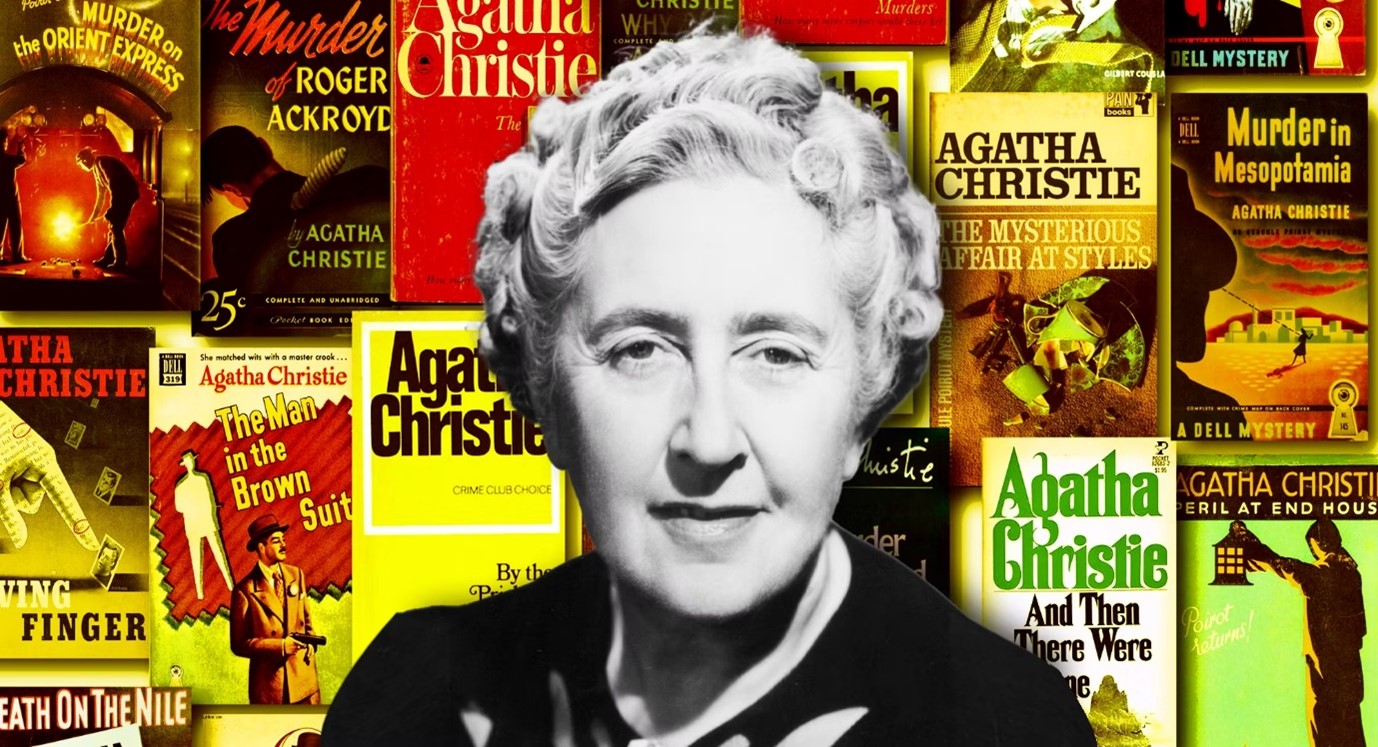
Wife, mother, surfer, and writer, she gave English literature a different color. Murders, criminals, suspects, and detectives — she offered the world more than seventy masterpieces. Outsold only by Shakespeare and the Bible, her books are translated into no less than one hundred languages. The “Queen of Crime” she was called, and a Dame of English literature she became, once you hear the word “crime”, you can think of no other name: Agatha Christie.
Inspired by the major events of her own life, Christie made use of every experience, whether painful or pleasant, to bring her novels into existence.
Her first novel, “The Mysterious Affair at Styles”, was the result of a dare from her older sister, Madge, who was certain that Christie could not write a good detective novel. It took the book four years to be printed after it was rejected by six publishers.
Agatha Christie volunteered to work as a nurse during World War I. It was when she joined the hospital dispensary that she became familiar with several types of venom. Her exceptional knowledge of poisons was clearly translated into her novels, as poisoning was her favorite and most-used murder method.
Not only did she write crime novels, but she also amazed the world with more than twenty plays. Agatha Christie’s “The Mousetrap” is the longest-running play in theater history. It blows its 72nd candle this year after non-stop performances since 1952. “The Mousetrap” went dark for a short period of time during the COVID-19 pandemic. When Christie passed away, the West End theaters that are still home to the playwright’s finest creation dimmed their lights for an hour as they grieved the loss of the Queen of Crime.
Being the wife of an archeologist granted Christie the chance to set foot in the Middle East. Fascinated by the beauty of Egypt and Iraq, she wanted to take the readers on a similar trip. She sprinkled Egyptian and Iraqi spices on the pages of some of her novels, creating remarkable exotic settings. “Death on the Nile” and “Murder in Mesopotamia” are glimpses of Christie’s trips around the world.
Christie’s stories captivated millions of people across the globe, including Queen Elizabeth II, who was a huge fan of her works. To honor the writer for her contributions to English literature, the late Queen once invited her to dinner and made her a Dame in 1971, the highest honor women can receive in the United Kingdom.
Behind the brilliant crime novelist was a woman with deep insights about life and human psychology. Taking a break from her fans’ expectations, Christie wrote six bittersweet semi-autobiographical novels under the pen name “Mary Westmacott”. Using the pseudonym, she was capable of secreting her true identity for almost twenty years.
The beloved writer’s career took a downturn as she possibly suffered from dementia. Academics at the University of Toronto explain that the alterations in Christie’s writings are not related to aging but rather hint at the existence of Alzheimer’s. Although she was not clinically diagnosed with dementia, the novels she wrote towards the end of her life show a sharp decline in vocabulary and an increase in repeated phrases and indefinite pronouns such as “thing” and “something”.
Dame Agatha Christie drew her last breath in 1976, but her memory remains alive on every bookshelf and in the surprised looks of the readers who always fall for her red herrings and exceptional twists.